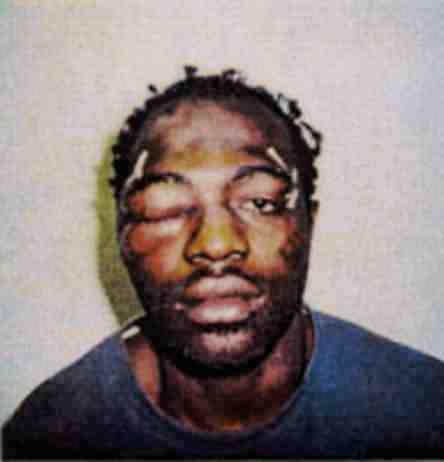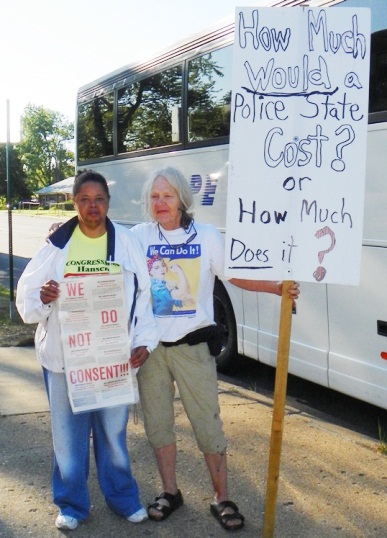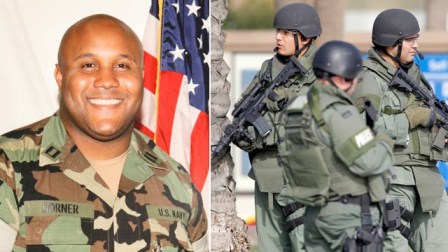Posted by TheBlackList eNewsletter
By Steve Yip
February 17, 2013
Over the last week, the news has been filled with stories of the massive manhunt for former LAPD officer Christopher Dorner for allegedly killing three people connected to police. This has caused great turmoil in society, including within top levels of the LAPD and city government.
One thing which stands out—and which has been noted by the New York Times and other major media—is the impact Dorner’s accusations and depictions of racist brutality and discriminatory practices of the LAPD have had in many different corners of society. It has especially resonated with many who have been subjected to widespread police mistreatment. And it has given rise to societal discussion and thinking about the underlying problem of systemic police abuse, brutality, and mistreatment that Black and Latino people—and many others—experience at the hands of the police across the country.

Rodney King after brutal beating by LAPD cops, which led to a widespread rebellion by the Black community.
Without speaking to the particularities of the acts this person has been accused of carrying out, the fact that someone like this, who was “on the inside” and part of the machinery of the LAPD, considered the problem of racist brutality and corruption, on the part of the LAPD, so intolerable (citing things such as the Rodney King beating and the Rampart scandal—and saying that things have not gotten better, or may have even gotten worse, since then) and that this person, in this position, was driven to such extremes, speaks to the reality of the racist and murderous brutality of the police and the whole apparatus of repression of this system, which is widespread, continual, and systematic, and which is not simply a particular feature of the LAPD but is characteristic of police and the “injustice system” in the country as a whole, in the service of a brutally oppressive system, a system which has white supremacy build into its very foundation and structure.
As BA has summed up in BAsics 1:24:
The role of the police is not to serve and protect the people. It is to serve and protect the system that rules over the people. To enforce the relations of exploitation and oppression, the conditions of poverty, misery and degradation into which the system has cast people and is determined to keep people in. The law and order the police are about, with all of their brutality and murder, is the law and order that enforces all this oppression and madness.

Sandra Hines and Cindy Darrah of Detroit get ready to ride to court hearing on Detroit “consent agreement” lawsuit.
We are building a movement for revolution—a revolution which, in order to have a real possibility of winning, would need to involve millions of people who have become convinced of the need for this revolution and who, with the emergence of a deep-going revolutionary crisis in society, would be determined to fight to carry out such a revolutionary struggle and to fight to win. All of the work we are doing is aimed at contributing to the development of such a revolutionary movement, guided by this strategic understanding, orientation and approach. If people want to learn more about our strategy for revolution—as well as why we think such a revolution is urgently needed by the masses of humanity, and why and how it is possible—they should come to the premiere of the film BA Speaks: REVOLUTION—NOTHING LESS!
— Steve Yip, P.O. Box 941, Knickerbocker Station, New York, New York 10002-0900 * 866-841-9139 x2670, yipzzz@gmail.com
Click on Dorner-Manifesto-FULL-TEXT to read Dorner’s account of police brutality and racism in the LAPD.






I know that not all police officers are corrupt; in fact I’d guess that most are not. The problem is what is done with those who are accused of being corrupt? What is done when they are found to be? Thanks for broadening the discussion Diane Bukowski!